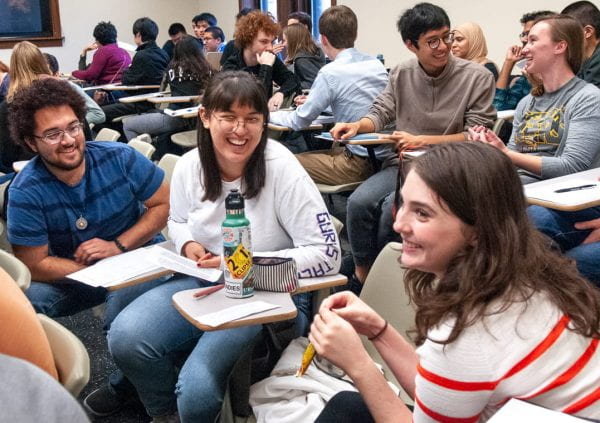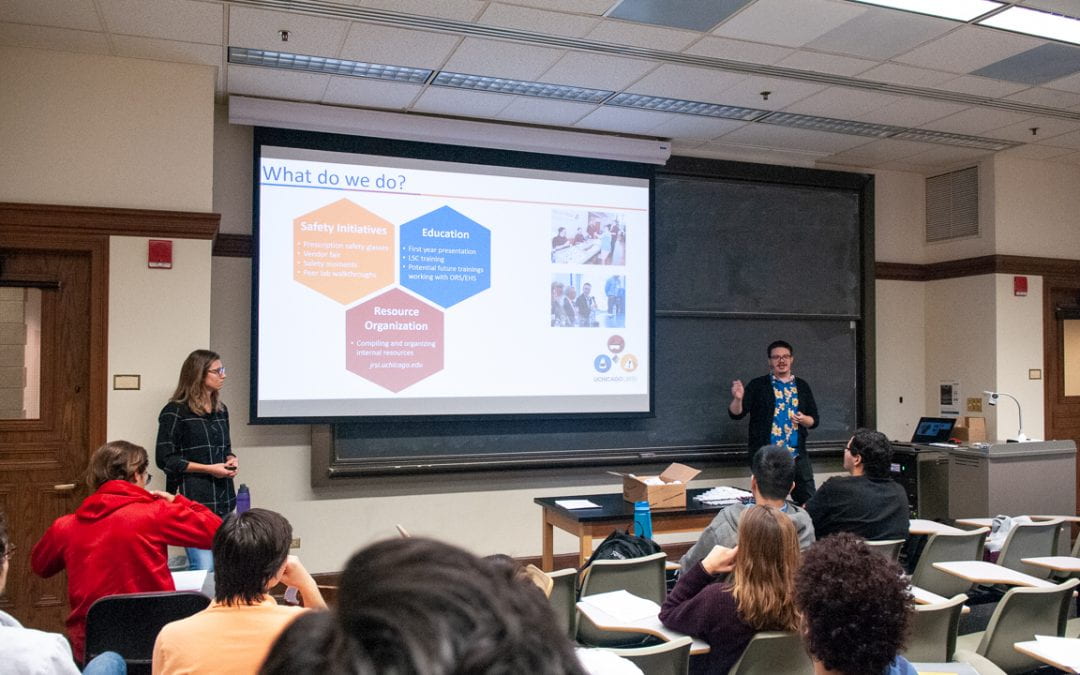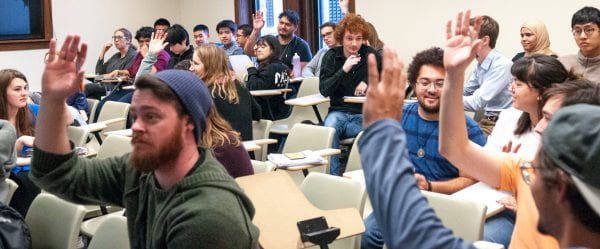Hello, World!
A key component to maintaining a safe work environment for all researchers is effective communication of technical knowledge. This is especially true in situations where researchers, intentionally or unknowingly, take unnecessary risks with their experiments and procedures. Despite the importance of open dialogue, few scientists receive formal training on starting conversations to address safety-related concerns. We in the JRSI recognize that sometimes these discussions can be difficult and that approaching a lab-mate or student about safety can sometimes feel awkward. To help prepare our university’s next class of researchers and teaching assistants for effective communication in a lab setting, we have created a special training seminar for first-year graduate students in the Chemistry department and the Pritzker School of Molecular Engineering (PME) which focuses on tips and tricks for navigating these conversations with confidence.
Now in its second year, our training teaches students how to frame safety conversations by using a concept called SPACE: Speak up, make it Personal, Ask open-ended questions, Create a space where questions are encouraged, and Escalate if necessary. During the training, members of the JRSI role-play a few examples of how to use SPACE in commonly encountered, non-emergency situations – like when an undergraduate student doesn’t consistently wear their goggles or when a fellow researcher uses gloves on a glove-free common instrument. After these example role-playing scenarios, students form small groups and practice their own methods of approach through provided role-playing scenarios. Finally, everyone gathers together to brainstorm approaches to different conversations and share what they learned.

First-year students in the Chemistry Department role-play safety scenarios during the breakout session.
This year, the Chemistry department’s first year training was held in November so that incoming teaching assistants would have some experience and perspective on undergraduate and research laboratories. During this year’s brainstorming session, the students focused on how the respective roles of both parties can affect your method of approach. For example, when addressing a more senior researcher, the first years suggested that expressing concern for their well-being or asking questions from the perspective of learning would likely be an effective approach. On the other hand, if mentoring a more junior researcher or undergraduate student, they would likely ask them more directly if they are aware of the hazards of their research. From there, they can guide the younger student through how to optimize an experimental set-up and PPE for the relevant hazards. Overall, regardless of their respective roles, ensuring safe research practice is the responsibility of all involved!
The training for first-years in the PME was held in January right before students began ramping up work in their respective laboratories. After the breakout sessions, several students emphasized to the group the central role of lab culture in promoting safe research practices. They shared how important it is to them that older students be personable and attempt to make younger students feel comfortable asking questions. When reviewing the unsafe situations from the break-out session, one student suggested offering to help the person causing the unsafe situation. This idea was prompted by one of the role-play scenarios which involved a more senior researcher eating in the lab while trying to get results for group meeting. In order to diffuse the situation without prompting an argument, this student proposed offering to watch the researcher’s reaction while they ate lunch outside of the lab. This idea resonated with many of the first years in attendance, especially since not all safety hazards occur intentionally. Following up on that line of reasoning, the use of “we” statements instead of “you” statements was suggested as a good way to offer a correction without making the other person feel defensive, especially in situations where the other person may genuinely be unaware. However, multiple students clarified that they would take a more direct approach if immediate intervention was necessary. Finally, and similar to the conclusion with the Chemistry first years, they pointed out that everyone is responsible for safety, not only the safety officers.
The JRSI wants to thank the Chemistry department and PME first-year students for their thoughtful responses and feedback during the training session and for diving into the example situations with such enthusiasm! We look forward to carrying out this training with new first-year students in the future.

